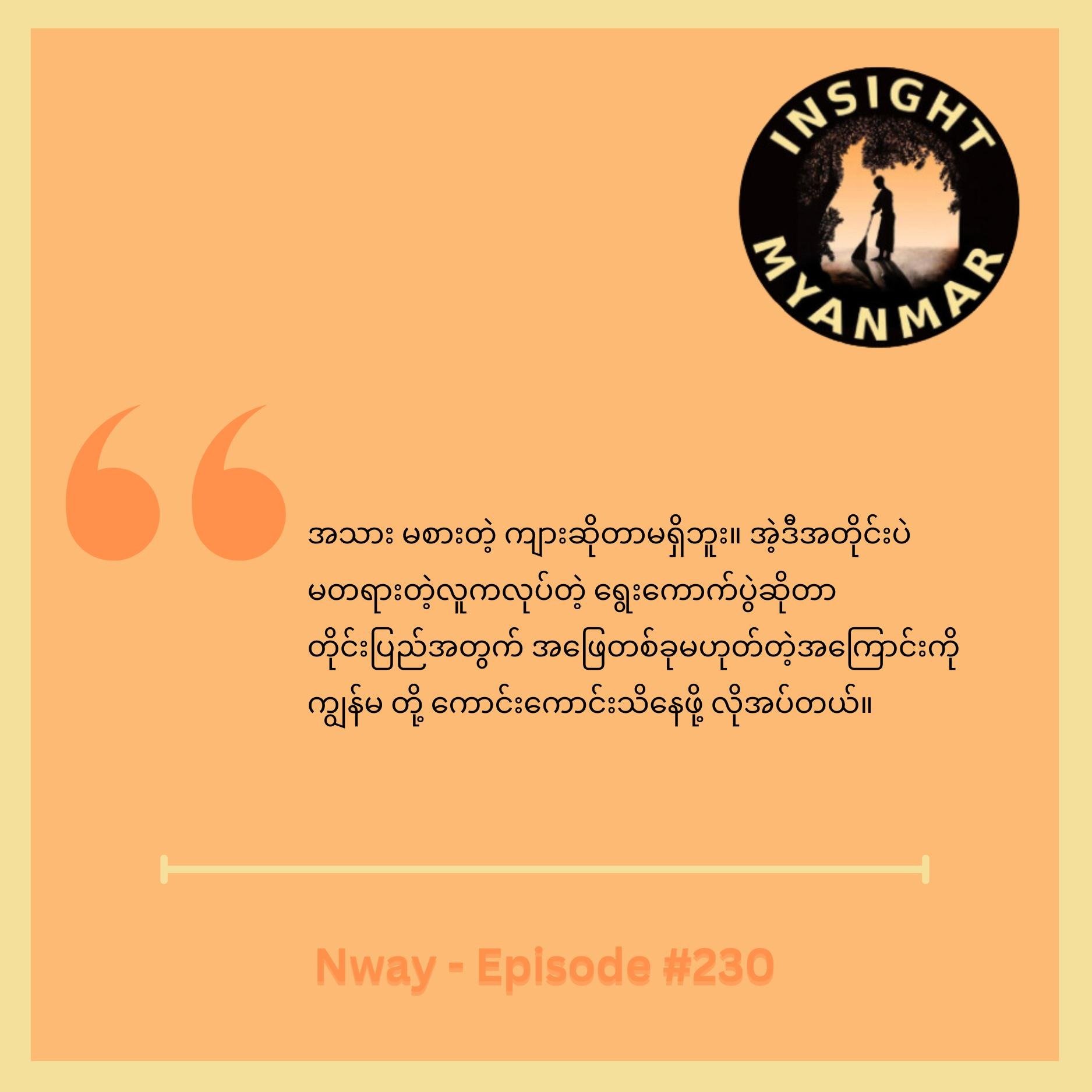The Burmese Tiger
“We realized that an election is not the solution for the country, and dialogue is impossible. You cannot convince a tiger not to eat meat!”
Nway's unwavering dedication to democracy stands as a powerful testament to resilience. From a young age, his life was interwoven with political strife and the quest for freedom. His father, a doctor, and his mother, a nurse, were longtime supporters of Aung San Suu Kyi, and inculcated the importance of resistance to military rule in Nway. Following his father's death in prison, Nway's mother urged him to join the National League for Democracy, a path fraught with danger. Despite the personal risks and family sacrifices, Nway remained steadfast in his fight against military oppression.
With regards to the important 2015 elections that paved the way to the transition, Nway feels that while they were a critical milestone, they also created an illusion of progress. He viewed them as a step forward, a necessary step towards the larger goal of genuine democracy. However, thought encouraged by the NLD’s landslide victory, he nonetheless believed that the elections were somewhat premature; Nway understood that while this political shift was significant, it was far from a comprehensive solution to Myanmar's deep-seated issues. In short, he never expected them to fix all of Myanmar's problems, and was acutely aware that the military's grip on power, enshrined in the 2008 constitution, would continue to stifle true democratic reforms. Overall, his cautious optimism reflected a realistic understanding that the road ahead was still fraught with challenges and that sustained effort and vigilance were crucial in the ongoing struggle for freedom and justice.
Nway likens the military to a tiger: a beast that is inherently dangerous. Just as one cannot convince a tiger to eat grass, Nway believes that expecting the military to willingly cede power and embrace true democracy will always be unrealistic. So without addressing this fundamental issue of military dominance, no election can ever ensure true peace and democratic governance in Burma. His analogy highlights his belief that the struggle requires not just political maneuvering, but a fundamental shift in the power dynamics of Myanmar.
Nway's analysis remains profoundly relevant in the current moment as Myanmar continues to grapple with the military's tight control. Indeed, building a system beyond the military's grasp requires unwavering commitment, strategic defiance, and international support. Nway’s insights highlight the importance of grassroots activism and the need for a collective, sustained effort to push for genuine, democratic reforms.

